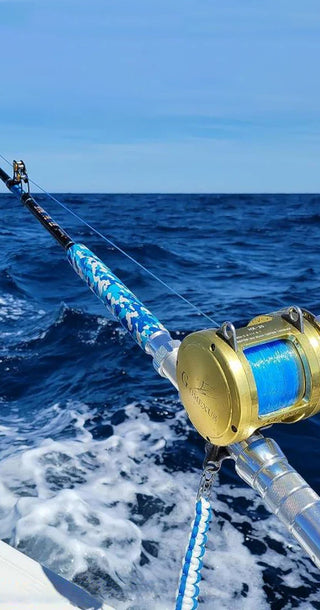Rebuilding an Old Boat
Initial Purchase and Refit Costs
When considering the cost of rebuilding an old boat, the initial purchase price is just the beginning. While you might find an old boat that needs a lot of work the cost of refits can escalate quickly. Refitting expenses can make the total investment comparable to purchasing a used boat that needs less work. However, in comparison new boat prices have soared, which brings might bring many used boats into your budget.
Detailed Refitting Expenses
Structural Repairs
Old boats often require significant structural repairs, including hull restoration, deck replacement, and fixing any water damage. These repairs are crucial for safety and longevity but can be quite costly.
Engine Overhaul
Refitting an old boat typically involves overhauling or replacing the engine. Marine engines are expensive, and labor costs add up quickly. High-quality marine engines can ensure better performance and reliability.
Electrical and Electronics Upgrades
Updating the electrical system and electronics is essential for modern navigation and safety. This includes installing new wiring, lighting, and advanced navigation systems. High-quality marine electrical components can significantly enhance your boat's functionality.
Maintenance and Upkeep
Keeping an old boat in good condition demands regular maintenance, which can be both time-consuming and costly. This includes routine cleaning, servicing mechanical parts, and repairing any wear and tear. Proper storage, especially in harsh climates, is crucial to prevent further deterioration and maintain the boat's value.
Depreciation
Boats depreciate over time, and older boats are no exception. New boats typically lose 10% to 15% of their value in the first year and up to 40% by the tenth year. However, the depreciation rate can vary based on the boat's condition, brand, and market demand.
Buying a New Boat
Initial Costs
Purchasing a new boat involves higher upfront costs compared to buying and refitting an old boat. New boats come with the latest technology and features, which can be appealing to many buyers but also add to the overall price.
Advantages of New Boats
Reliability and Warranty
New boats offer the advantage of reliability and typically come with manufacturer warranties. This means fewer immediate repairs and lower maintenance costs in the short term, providing peace of mind for new boat owners.
Modern Features and Technology
New boats are equipped with the latest advancements in marine technology, from navigation systems to comfort amenities. These features can enhance the boating experience, making new boats an attractive option for many enthusiasts.
Depreciation of New Boats
While new boats offer many benefits, they also depreciate quickly. The value of a new boat can drop significantly within the first few years. However, the resale value may still be higher than that of an older, heavily refitted boat, depending on the brand and model.
Resale Value Considerations
The brand and features of a new boat can significantly impact its resale value. Boats from reputable brands with desirable features tend to retain their value better over time. However, even these boats will experience depreciation, especially if not properly maintained.
Do Old Boats Hold Their Value?
Factors Influencing Value Retention
Condition and Maintenance
The condition of a boat and how well it has been maintained play crucial roles in its value retention. Boats that are well-maintained, with regular servicing and upgrades, tend to hold their value better. This includes ensuring the hull, engine, and onboard systems are in good working order. Regular maintenance and proper storage are key to preserving a boat's value over time.
Importance of Regular Maintenance
Routine maintenance tasks include cleaning, polishing, and inspecting the boat for any signs of damage or wear. It's also essential to service the engine and other mechanical components regularly. Proper maintenance can prevent costly repairs down the line and help maintain the boat's aesthetic and functional appeal.
Market Demand
The demand for certain types of boats can significantly impact their value. For instance, yachts may depreciate faster due to lower demand compared to more popular styles like jet boats and deck boats. Understanding the current market trends and demands can help boat owners predict the potential resale value of their vessels.
Popular Boat Types
Boats that cater to popular activities, such as fishing, water sports, and leisure cruising, tend to hold their value better. This is because there is a consistent demand for these types of boats. Keeping an eye on market trends can provide insights into which boat types are in demand and likely to retain their value.
Brand and Features
Boats from reputable brands with desirable features and amenities tend to retain their value better. Brands with a history of quality and reliability are more likely to be sought after in the used boat market. Additionally, boats with modern electronics, comfortable interiors, and efficient engines are more appealing to buyers.
Impact of Outdated Features
On the other hand, boats with outdated electronics or lacking modern amenities may see a drop in their value. Upgrading these features can be a worthwhile investment to enhance the boat's appeal and resale value.
Economic Factors
Economic conditions, such as interest rates and inflation, can influence the boat market. In 2024, high demand and elevated prices have been observed, but potential economic downturns could impact future pricing trends. It's essential to consider these external factors when evaluating the potential value retention of an old boat.
Market Fluctuations
The boat market can be influenced by various economic factors, including changes in consumer spending, fuel prices, and economic stability. Being aware of these fluctuations can help boat owners make informed decisions about buying, selling, or rebuilding their vessels.
Historical Value Trends
Looking at historical value trends for different boat types can provide valuable insights into how well certain boats retain their value over time. This information can guide buyers and sellers in making decisions that align with their financial goals.
Making the Decision: Rebuild or Buy New?
Evaluating Personal Preferences and Needs
Customization Options
Rebuilding an old boat allows for extensive customization. You can tailor the boat to your specific preferences, adding features and amenities that suit your needs. This level of customization can be particularly appealing if you have a clear vision of what you want your boat to be.
Ready-to-Sail Convenience
Buying a new boat offers the convenience of a ready-to-sail vessel. With all the latest features and technologies already installed, you can enjoy your boating experience without the delay and effort involved in a major refit project.
Financial Considerations
Budget Constraints
Budget is a significant factor in deciding whether to rebuild or buy new. While rebuilding might offer lower initial costs, the expenses can add up quickly. New boats have higher upfront costs, but they come with warranties and require less immediate maintenance.
Long-Term Investment
Consider the long-term financial implications of your decision. A well-maintained rebuilt boat can offer years of enjoyment, but it may also require ongoing investment in maintenance and upgrades. New boats depreciate quickly but may hold better resale value in the short term.
Risk Factors
Potential Hidden Issues
Rebuilding an old boat can come with the risk of hidden issues that may not be apparent during the initial purchase. These can include structural weaknesses, outdated systems, and unforeseen mechanical problems. Thorough inspections and professional evaluations are crucial to mitigate these risks.
Warranty and Support
New boats typically come with manufacturer warranties, offering a safety net for potential issues. This warranty can cover significant repairs and provide peace of mind. Rebuilt boats, on the other hand, do not come with such guarantees, placing more responsibility on the owner for any repairs.
Practical Tips for Decision Making
Conduct Thorough Inspections
Whether you're considering an old boat for rebuilding or a new one, thorough inspections are essential. For old boats, hire a professional marine surveyor to evaluate the condition and identify any potential issues. For new boats, ensure all features and systems are in perfect working order before finalizing the purchase.
Compare Costs and Benefits
Make a detailed comparison of the costs and benefits of both options. Consider the initial purchase price, refitting costs, potential maintenance expenses, and the resale value. Weigh these against your budget, preferences, and long-term goals to determine the best option.
Seek Expert Advice
Consulting with boating experts and experienced boat owners can provide valuable insights. They can share their experiences, highlight potential pitfalls, and offer recommendations based on your specific situation.
Practical Considerations for Both Options
Storage and Maintenance
Proper storage and regular maintenance are critical for both new and rebuilt boats. Ensure you have a plan for storing your boat during off-seasons and maintaining it throughout the year to preserve its value and functionality.
Insurance and Legal Requirements
Ensure you understand the insurance and legal requirements for your boat. This includes obtaining appropriate insurance coverage and adhering to any local regulations and safety standards.
Conclusion
In conclusion, the decision to rebuild an old boat or buy a new one depends on individual preferences, budget, and intended use. Rebuilding offers customization and potentially lower initial costs but comes with risks of higher maintenance and depreciation. On the other hand, new boats provide reliability and modern features but depreciate quickly. Understanding these factors and conducting thorough research can help boat owners make informed decisions that align with their needs and financial goals.



